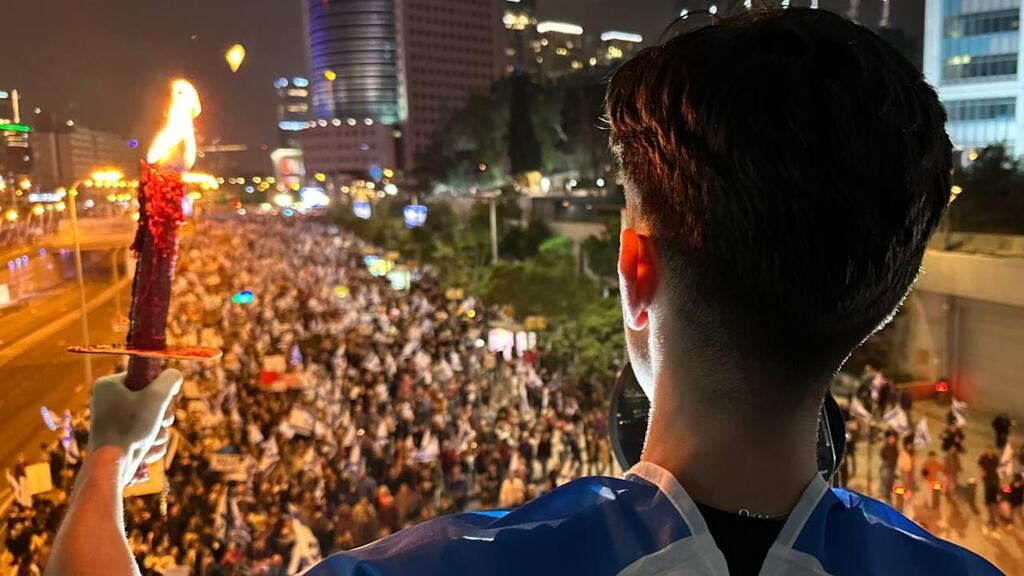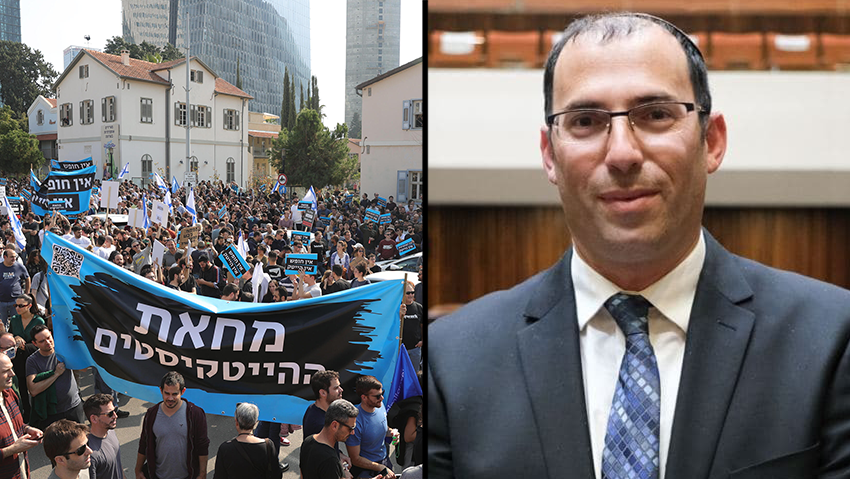The nature of society and the set of values that shape it are measured by a multitude of words and synonyms for a subject that is at the core of its existence. In Jewish and Israeli culture, debating is held in high regard - there are some 20 words that can be used to describe this one concept.
Many of our founders saw the debate as a significant element of the culture. They were not intimidated by conflicting values. A world of dialectic was the guiding light for them. Even the Talmud, which deals with debates over legal and moral issues yet reaches no concrete answers, has managed to become part of the Jewish canon.
So what happened to us? How did we get to the point where we can no longer see or tolerate the opinions of the other side? How did a battle over the future of Israel's judicial system become a dichotomic black-and-white argument? How is it that we started as a culture which thrives on debate, to become one that is full of hateful arguments?
The opponents of the judicial reform force their narrative on the whole world, claiming to represent doctors, hi-tech workers, and IDF reservists, over that of the other side, which also includes elite IDF officers, doctors, women, and hi-tech workers - causing further polarization and preventing the opportunity to listen and enable different views. A total victory for either side will be a Pyrrhic victory and will be detrimental to Israeli society as a whole.
In order to pry ourselves out of this vicious cycle, the proponents of the proposed judicial reforms must move past the injustices they were subjected to during the 2005 disengagement from Gaza, and the Oslo Accords, when their voices were ignored.
The time has come to clear the table of past injustices, to sit down and get to the bottom of the ongoing debate, in which the judicial reforms are only a symbol.
Both sides have to get over themselves.
Those opposed to the reforms must accept that the problem is not the personalities of Justice Minister Yariv Levin and MK Simcha Rothman. These politicians, as hard as it is to accept, reflect the opinions of some two million voters that perceive the High Court of Justice as a promoter of liberal values which are far from the national Jewish sentiments they advocate for. It doesn't really matter if their opinions are empirically supported or not. What does matter is the fact that they feel and think as they do. And this opinion, believe it or not, is also shared by some economists and doctors.
We need to stop complaining about the country's identity changing. It is evolving demographically and socially. Protests and threats will not change that. We have no other choice but to come together to weigh out our options of universal values against Jewish values and form a collective identity. This may be the way to prevent hasty and sweeping legislation.
On the other hand, the responsibility for the pickle we are in is primarily on the government. It should adopt a certain degree of humility. A government that aims to promote the Jewish identity of the state - as it constantly argues - is certainly aware that the separation of powers is essential to Jewish values. Judaism has always lived by universal norms and conducted debates with the general public. On this matter, our courts are meant to reflect this, and should not be seen as the enemy.
If we want to maintain our ability to solve problems through dialogue, we cannot act upon these impulsive one-sided actions.
Israeli society is a mosaic of culturally diverse sectors, which differ greatly from one another. It is possible that the severe crisis we're in could actually be an opportunity for us to discover the value systems of the other sectors.
Perhaps in honor of Israel's 75th birthday, we should give the country the opportunity for rejuvenation and revival. To do this, we must re-adopt the correct approach to deal with debate and controversy.




